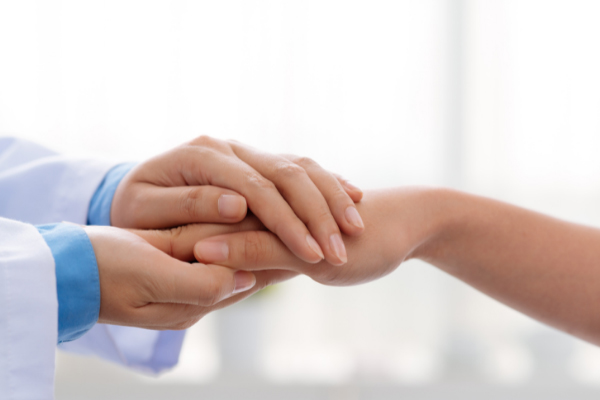Heroin use can have a terrible effect on a person’s life and make it very difficult to care for the people they love. The physical, emotional, and behavioral changes that are likely to occur in someone using or addicted to heroin can be visible if you watch for them. If you notice that a person is using heroin, getting the right help on time will support them on their journey to recovery. 
What is Heroin and Why Does it Cause Addiction?
Heroin is an opioid produced from the opium poppy seed plant and morphine. As an opioid, this drug targets opioid receptors in the brain and disrupts pain-management mechanisms. A person’s reward pathway in the brain regulates pain sensations by releasing endorphins and dopamine. Heroin does the same thing- but it also causes a powerful sense of euphoria while telling the brain not to control pain any longer because the heroin is doing it. As the addiction to heroin progresses, the brain’s reward center and pain receptors are altered, leading to physical dependence on heroin.
What Happens Because of Physical Dependence to Heroin?
As a result of repeated use of heroin, physical dependence starts to develop. Physical dependence refers to a change in the physiological state induced by chronic heroin abuse. The individual’s brain stops releasing natural pain blockers that reduce mild sensations from hot and cold, muscles, digestion, minor skin abrasions, and environmental particles inside the eyes, nose, ears. This represents a deficit in homeostasis which means the person must keep using heroin to avoid feeling pain and sickness from average stimuli. Without continuous heroin in the system, the person will go into opioid withdrawals. Heroin withdrawals are treated with medication-assisted treatments that are safe and less damaging opioid replacement medications that provide effective relief.
What Types of Emotional Difficulties Result from Heroin Abuse?
The state of mind of drug abusers is closely linked to depression, anxiety, and emotional sensitivity. Most if not all drug users are self-medicating. Heroin is a central nervous system depressant which means it calms and sedates. Worried people, stressed or anxious, will enjoy heroin. Others who are most likely to desire the euphoria from heroin are individuals who are depressed. Even though heroin slows down the mind and body, it is a powerful pain killer. So, someone sad or depressed will not feel the emotional or physical sensation of psychological pain while on heroin.
Is There Therapy to Treat Heroin Addiction and Emotional Disorders?
For anyone, overcoming heroin addiction on their own can be challenging. Still, when someone is depressed or has anxiety and uses heroin to treat it, they are even more afflicted. Recovery becomes even more complicated when addiction is coupled with an emotional disorder because both issues must be treated simultaneously. Dual Diagnosis programs combine in-depth therapy and addiction treatments that provide the necessary components to support a comprehensive treatment program.
Is Dual Diagnosis Available for Heroin Addiction?
Yes, heroin and emotional disorders are the most common dual diagnoses. The National Institute on Mental Health recommends dual diagnosis treatment for SUD (addiction) and co-occurring mental disorders (dual diagnosis).
Researchers have found that about half of individuals who experience a SUD during their lives will also experience a co-occurring mental disorder and vice versa. Co-occurring disorders can include anxiety disorders, depression, attention-deficit hyperactivity disorder (ADHD), bipolar disorder, personality disorders, and schizophrenia. It is better to treat the SUD and the co-occurring mental disorders together in a dual diagnosis program rather than separately. (NIMH)
What Therapy Does Evoke Wellness in Coconut Creek, FL Provide?
Evoke Wellness of Coconut Creek offers a dual diagnosis treatment plan and substance and disorder-specific program. Our success rates are solid because we rely on an evidence-based form of therapy. We utilize cognitive behavioral therapy, dialectical behavioral therapy, one-on-one counseling, holistic therapy, medication-assisted treatments, and targeted behavioral therapy groups. Expert addiction clinicians oversee dual diagnosis treatment at Evoke Wellness treatment centers. Call to learn more about our dual diagnosis program and how we can help you recover.


